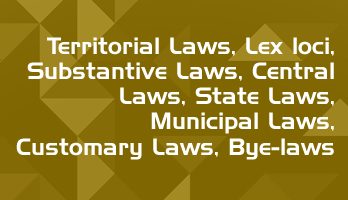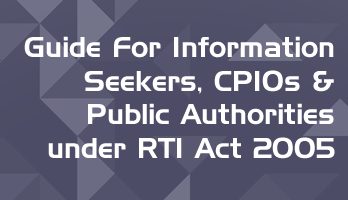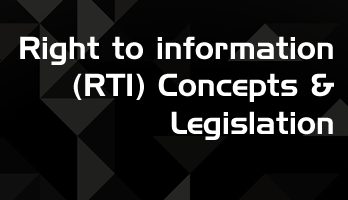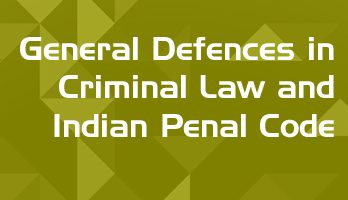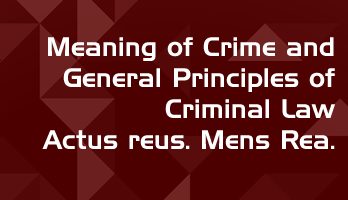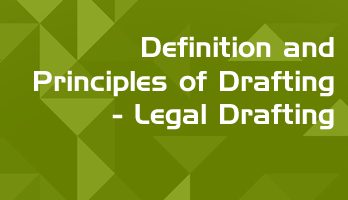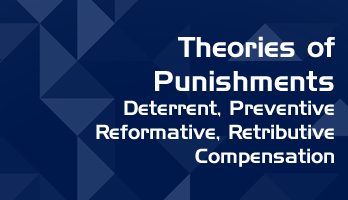Free Full Course Available on LawMint's YouTube Channel
How to Land Your Dream LLB Internship in a Top Law Firm
- Part 1 - Introduction
- Part 2 - Internship Planning
- Part 3 - Internship Research
- Part 4 - Building Your Profile
- Part 5 - The Email
- Part 6 - The Resume
- Part 7 - The Cover Letter
- Part 8 - The Interview
- Part 9 - Self Development
Practical and comprehensive course, with real examples and step-by-step analysis of the complete internship application process. Check out LawMint's YouTube channel now!
Exceptions to the Rule of Natural Justice
Application of the Principles of Natural Justice can be excluded either expressly or by necessary implication subject to the provisions of Articles 14 and 21 of the Constitution. Therefore, if the Statute, expressly or by necessary implication, precludes the rules of natural justice it will not suffer invalidation on the ground of arbitrariness.
Exclusion in Emergency
In exceptional cases of emergency where prompt preventive or remedial action, is needed, the requirement of notice and hearing may be obviated. Such as, in situations where a dangerous building is to be demolished, or a company has to be wound up to save depositors.
However, the administrative determination of an emergency situation calling for the exclusion of rules of natural justice is not final. The courts may review the determination of such a situation.
Natural Justice is pragmatically flexible and is amenable to encapsulation under compulsive pressure of circumstances. It is in this context that the Supreme Court observed: “Natural Justice must be confined within their proper limits and must not be allowed to run wild. The concept of Natural Justice is a magnificent thoroughbred on which this Nation gallops forward towards its proclaimed and destined goal of justice social, economic and political.
Exclusion in Cases of Confidentiality
In a case the Supreme Court held that the maintenance of surveillance register by the police is a confidential document. Neither the person whose name is entered in the register nor any other member of the public can have access to it. Furthermore, the court observed that the observance of the principles of natural justice in such situation may defeat the very purpose of surveillance and there is every possibility of the ends of justice being defeated instead of being served.
Same principle was followed in S.P. Gupta v. Union of India, where the Supreme Court held that no opportunity of being heard can be given to an Additional Judge of a High Court before his name is dropped from being confirmed.
It may be pointed out that in a country like India surveillance may provide a very serious constraint on the liberty of the people, therefore, the maintenance of the surveillance register cannot be so utterly administrative and non-judicial that it is difficult to conceive the application of the rules of natural justice.
Exclusion in case of routine matters
A student of the university was removed from the rolls for unsatisfactory academic performance without giving any pre-decisional hearing. The Supreme Court held that the very nature of academic adjudication appears to negative any right of an opportunity to be heard. Therefore, if the competent academic authorities examine and assess the work of a student over a period of time and declare his work unsatisfactory, the rules of natural justice may be excluded.
In the same manner when the Commission cancelled the examination of the candidate because, in violation of rules, the candidate wrote his roll number on every page of the answer, the Supreme Court held that the principles of natural justice are not attracted.
The Court observed that the rule of hearing is strictly construed in academic discipline as if this is ignored it will not only be against public interest but would also erode social sense of fairness. However, this exclusion shall not apply in case of disciplinary matters or where the academic body permits non-academic circumstances.
Exclusion Based on Impracticability
Rules of Natural Justice may be excluded on the grounds of administrative impracticability. For example, in a case where the entire M.B.A. entrance examination was cancelled by the university because of mass copying, the court held that notice and hearing to all the candidates is not possible in this situation, which has assumed national proportions. Thus, the court sanctified the exclusion of the rules of natural justice on the ground of administrative impracticability.
Exclusion in Cases of Interim Preventive Action
If the action of the administrative authority is a suspension order in the nature of a preventive action and not a final order, the application of the principles of natural justice may be excluded. In a case where the institution passed an order debarring the student from entering the premises of the institution and from attending classes till the pendency of a criminal case against him for stabbing a co-student.
The Delhi High Court held that such an order could be compared with an order of suspension pending enquiry which is preventive in nature in order to maintain campus peace and hence the principles of natural justice shall not apply. Therefore, natural justice may be excluded if its effect would be to stultify the action sought to be taken or would defeat and paralyse the administration of the law.
The Supreme Court in Maneka Gandhi v. Union of India observed : “Where an obligation to give notice and opportunity to be heard would obstruct the taking of prompt action, especially action of a preventive or remedial nature, right of prior notice and opportunity to be heard may be excluded by implication.”
Exclusion in Cases of Legislative Actions
Legislative action, may be plenary or subordinate, is not subjected to the rules of natural justice because these rules lay down a policy without reference to a particular individual. On the same logic principles of natural justice can also be excluded by a provision of the Constitution also. Constitution of India excludes the principles of natural justice in Articles 22, 31(A), (B), (C) and 311(2) as a matter of policy.
Nevertheless, if the legislative action is arbitrary, unreasonable and unfair, courts may quash such a provision under Articles 14 and 21 of the Constitution.
In a case the Supreme Court held that no principles of natural justice have been violated when the government issued notification fixing the prices of certain drugs. The Court reasoned that since notification flowed from a legislative act and not an administrative one so the principles of natural justice do not apply.
Where No Right of the Person is Infringed
Where no right has been conferred on a person by any statute nor any such right arises from common law, the principles of natural justice are not applicable. This can be illustrated by referring a decision of the Supreme Court.
The Delhi Rent Control Act makes provision for the creation of limited tenancies. Sections 21 and 37 of the Act provide for the termination of limited tenancies. Combined effect of these sections is that after the expiry of the term a limited tenancy can be terminated.
The Supreme Court held that after the expiry of the prescribed period of any limited tenancy, a person has no right to stay in possession and hence no right of his is prejudicially affected which may warrant the application of the principles of natural justice.
There are a number of Exceptions to the Principles of Natural Justice. These are exclusion in emergency, confidentiality, routine matters, exclusion based on impracticability, interim preventive action, legislative action, where no right of the person is infringed, statutory exception or necessity, contractual arrangement.
Exclusion in Case of Statutory Exception or Necessity
Disqualification on the ground of bias against a person will not be applicable if he is the only person competent or authorized to decide that matter or take that action. If this exception is not allowed there would be no other means for deciding that matter and the whole administration would come to a grinding halt. But the necessity must be genuine and real.
Therefore, the doctrine of necessity cannot be invoked where the members of the Text Book Selection Committee were themselves the authors because the constitution of the selection committee could have been changed very easily by the government.
Exclusion in Case of Contractual Arrangement
In a case the Supreme Court held the principles of natural justice are not attracted in case of termination of an arrangement in any contractual field. Termination of an arrangement/agreement is neither a quasi-judicial or an administrative act so that the duty to act judicially is not attracted.
Questions
Name some of the ‘Exceptions’ to the Principles of Natural Justice.
Some of the important exceptions to the principles of natural justice are – exclusion in emergency, confidentiality, routine matters, exclusion legislative action, where no right of the person is infringed etc exclusion in case of statutory exception or necessity, exclusion in case of contractual arrangement.
Identify whether the statements below are true or false.
Application of principles of Natural Justice can be excluded either expressly or by necessary implications subject to the provisions of Articles–14 and 21 of the Constitution.
The above statement is true.
Natural Justice is pragmatically flexible and amenable to encapsulation under compulsive pressure of circumstances.
The above statement is true.
Free Full Course Available on LawMint's YouTube Channel
How to Land Your Dream LLB Internship in a Top Law Firm
- Part 1 - Introduction
- Part 2 - Internship Planning
- Part 3 - Internship Research
- Part 4 - Building Your Profile
- Part 5 - The Email
- Part 6 - The Resume
- Part 7 - The Cover Letter
- Part 8 - The Interview
- Part 9 - Self Development
Practical and comprehensive course, with real examples and step-by-step analysis of the complete internship application process. Check out LawMint's YouTube channel now!
Acknowledgement : This article is adapted from Swayam-NIOS course material.



